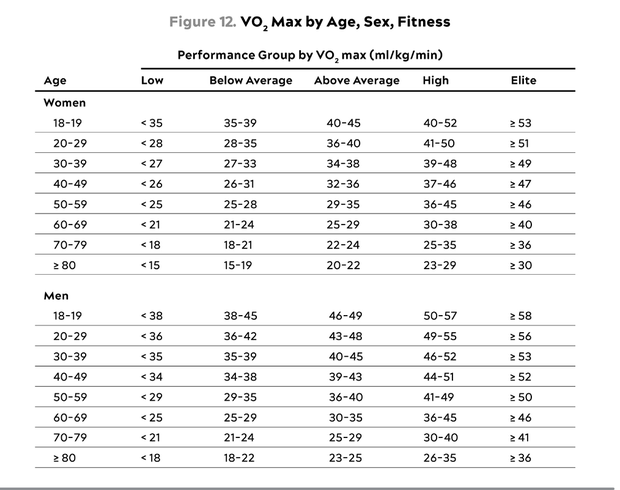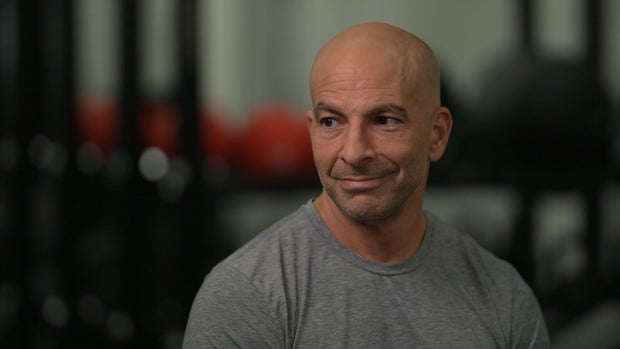Dr. Peter Attia: Exercise is key to longevity

When most people think of longevity, they imagine adding years to their lives. But to Dr. Peter Attia, one of the leading voices in the emerging field of longevity medicine, living longer is about more than counting birthdays. It’s about improving the quality of physical, emotional, and cognitive health — and he says intense exercise is part of the way to achieve it.
“At this point in my life, I feel like I’m making fewer novel insights around how to manage cholesterol and blood pressure than I am in thinking about ways to get people to be more compliant with exercise,” Attia told 60 Minutes contributing correspondent Norah O’Donnell.
A former surgeon trained at Johns Hopkins, Attia now has a podcast and a bestselling book that have made him a public figure in the growing movement to optimize health and extend life. He says his methods are data-driven and rooted in the science of performance.
The power of exercise
Attia emphasizes that among all the habits that promote a longer life — not smoking, eating well, and sleeping enough — exercise stands out above the rest.
“The data are pretty clear,” Attia said. “When you look at things like cardiorespiratory fitness, when you look at muscle mass, when you look at strength, they have a much higher association than things like even cholesterol and blood pressure.”
He explains that maintaining lifelong fitness requires both consistency and intensity. That means incorporating “zone two” exercise — steady activity like jogging or cycling at a pace where you can still hold a conversation — and also including sessions of “zone four” high-intensity training, the kind that leaves you breathless and unable to speak more than a few words.
The lifespan metric that matters most: VO2 max
When 60 Minutes visited Attia’s exclusive gym in Austin, O’Donnell underwent the same physical evaluation his patients do, including a demanding VO2 max test.
VO2 max measures how much oxygen your body can use during intense exercise, which is a reflection of your cardiorespiratory fitness. According to Attia, it is one of the strongest predictors of longevity.
“Your VO2 max is more strongly correlated with your lifespan than any other metric I can measure,” Attia said. “It predicts your risk of death from any cause, even more than your blood pressure, cholesterol, or smoking status.”
But fancy lab equipment is not needed to estimate a VO2 max score. People can test it at home by performing the Cooper Test, and all that is needed is a treadmill or a watch and a local running track. To test yourself, warm up for 10-15 minutes by doing light jogging and dynamic stretching, then run as far as you can in 12 minutes. By plugging the result into an online calculator, you can approximate your VO2 max score.
Many wearable devices — including the Apple Watch and WHOOP — also provide a VO2 max estimate that, while not perfect, is often close to lab results.
Attia’s goal for his patients is not just to be “high” for their age group, but elite, equivalent to someone 20 years younger.
Grip strength and the brain
Attia’s focus on fitness extends beyond the treadmill. He also looks closely at muscle strength, particularly grip strength, as a powerful indicator of health and cognitive resilience.
“If you look at the correlation between grip strength and dementia risk or mortality, it’s staggering,” he said. “Grip strength is a proxy for overall strength, and that kind of strength is acquired, not inherited. The work you do to build it is what protects your brain.”
Testing grip strength can be simple. For adults over 40, Attia suggests hanging from a pull-up bar — 90 seconds for women, two minutes for men — or performing a farmer’s carry, walking for a minute while holding weights equal to roughly 75% of your body weight.
Train like an athlete — for life
For Attia, exercise is medicine. Strength training and cardiovascular conditioning are essential not just for performance, but for longevity and mental sharpness.
To still be active in your 80s, Attia says, you must start training like an athlete in your 40s and 50s.
“Life is a sport,” Attia said. “It comes at you fast. It’s unpredictable.”
The video above was edited by Scott Rosann.





